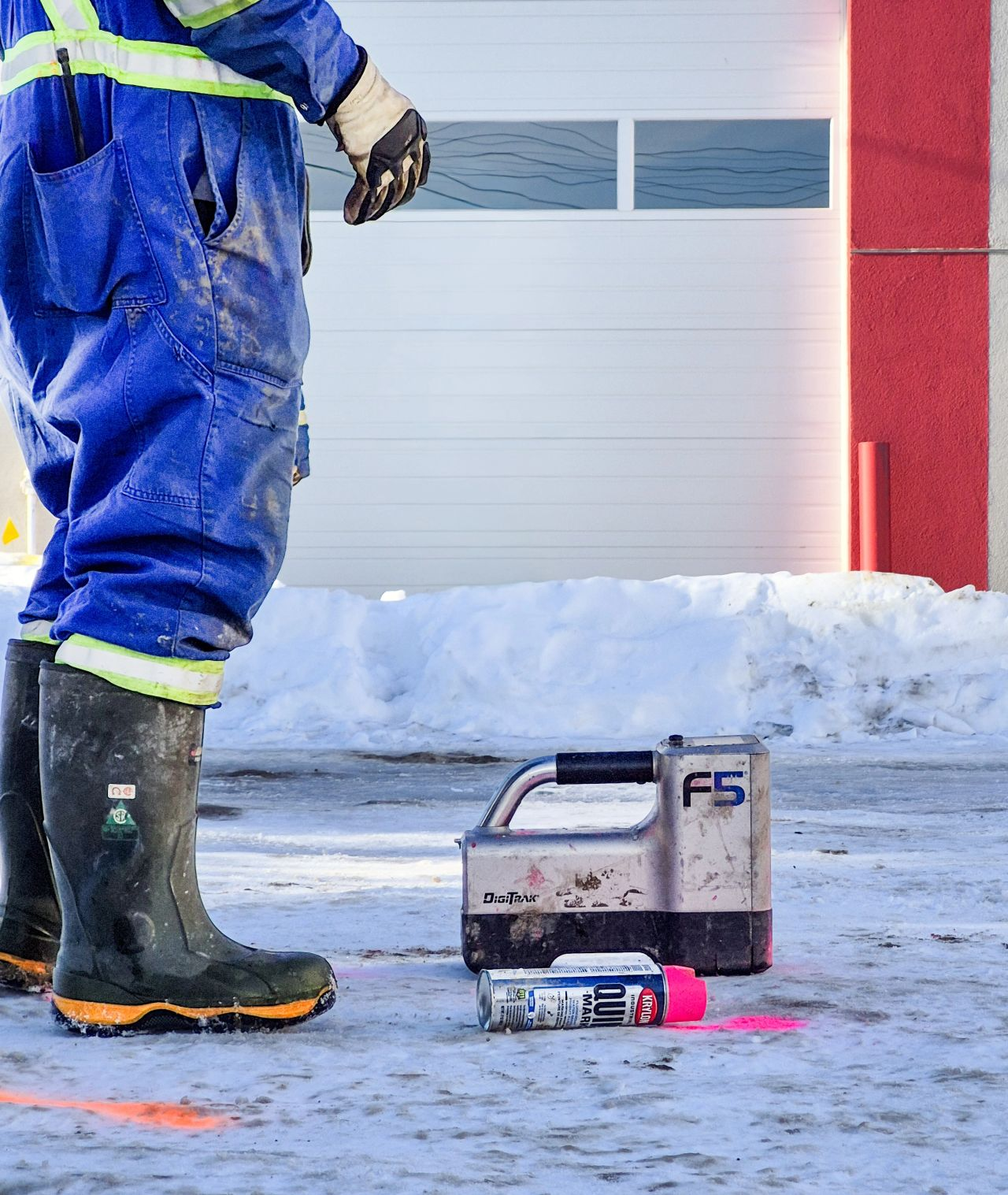








DIGITRAK F2
DIGITRAK F2
HOW IT WORKS
The F2 is part of a drilling system used by Developers and Construction Engineers to lay out long tracks of underground cabling without having to resort to laying down trenches. The HDD (Horizontal Directional Drilling) machine operator uses the F2 remote system to direct and track a drill-head which is outfitted with a transmitter. As the drill-head is navigated over and around hidden underground obstacles, it pulls behind it the cabling which will be connected to the building site.

Digitrak F2 cover
Digitrak F2 cover

Digitrak F2 cover
Digitrak F2 cover
After a few feet, it is necessary for another operator to track the location of the drill head in order to instruct the machine operator who would otherwise be operating without a clear idea of the drill-head’s location.
The F2 is outfitted with a sophisticated antenna that allows the secondary operator to accurately track the HDD drill-head’s location, depth and facing direction from an above-ground viewpoint.

Architecture and design
Architecture and design
the robot dog
For a hand-held product, the F2 has a unique shape. That wasn’t arbitrary, but rather the result of an “inside-out” influence on the product design. The F2 relies on the utility of it’s rather unique antenna to function. This antenna has to be close to the ground, but also held far from other objects (like the F2’s display and battery) to function. The result is this rather unique L-shape we affectionately named “the robot dog.” To get a handle on the ergonomic implications we built multiple rounds of prototypes and massing models to understand how we might create a sense of balance and comfort with such an unusual device.

Digitrak F2
Digitrak F2

DIGITRAK F2
DIGITRAK F2
BUILDING A SYSTEM
The F2 remote display mounts to the HDD machine and serves as the link between the HDD operator and the ground technician following the drill-head.
In developing the system, it was important to establish a clear relationship from one product to the next, as well incorporate details that would translate successfully into a strong product brand language.
One of the highlights of the project was to take functioning prototypes out to the field and get our customers involved. We learned quickly what was working and what wasn’t in the harsh environments these guys are working in.

F2-Sketches
F2-Sketches

In Use
In Use
Hard wear
Even after 20 years in the field, it’s still a delight to see these trackers in the wild - it makes us proud to know this is a design solution that has weathered and endured the test of time.







